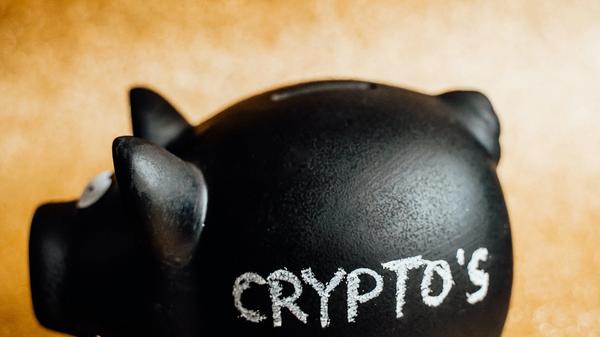As a stock trader or someone who simply enjoys following the market, it’s important to note that there are holidays throughout the year in which it’s closed. On these days of the year, you’re unable to make any transactions.
What Are Stock Market Holidays?
As noted above, stock market holidays are any non-weekend day that the New York Stock Exchange, Nasdaq, and bond markets are closed for the day.
Note: while stock market holidays are planned in advance, there are times when markets close for a day of mourning. For example, if a president passes on - such was the case with George H.W. Bush in 2018 - the market may close entirely.
What Happens if a Holiday Falls on the Weekend?
This is a question that confuses many people. If a holiday falls on a Saturday, the Friday before it becomes the stock market holiday. But if the holiday falls on a Sunday, the stock market is typically closed the following Monday.
When is the New York Stock Exchange and the Nasdaq Open?
When it’s not a holiday or a weekend, the New York Stock Exchange and the Nasdaq are open from 9:30 a.m. to 4 p.m. ET.
Also, there are pre-opening sessions to be aware of. For example, the New York Stock Exchange National market has a pre-opening session which begins at 6:30 a.m. EST.
Early trading goes from 7:00 a.m. to 9:30 a.m., followed by regular hours, and then the late trading session between 4:00 p.m. and 8:00 p.m.
Here are the Stock Market Holidays of 2020
Now that we have the basics out of the way, let’s turn our attention to the scheduled stock market holidays of 2020. On these days, the New York Stock Exchange, Nasdaq, and bond markets are closed to all trading.
- Wednesday, Jan. 1 — New Year's Day
- Monday, Jan. 20 — Martin Luther King Jr. Day
- Monday, Feb. 17 — Presidents' Day
- Friday, April 10 — Good Friday
- Monday, May 25 — Memorial Day
- Friday, July 3 — Observance of July 4, Independence Day, which occurs on a Saturday
- Monday, Sept. 7 — Labor Day
- Thursday, Nov. 26 — Thanksgiving Day
- Friday, Dec. 25 — Christmas Day
Common Questions Regarding Partial Closures
There are some holidays on which the market doesn’t close altogether, but instead, its hours are shortened. Here’s what you need to know:
- Bond markets close at 2 p.m. on the Thursday before Good Friday, but the New York Stock Exchange and the Nasdaq operate as usual.
- Bond markets close at 2 p.m. on the Friday before Memorial Day, but the New York Stock Exchange and the Nasdaq operate as usual.
- Bond markets are closed on Columbus Day, but the New York Stock Exchange and the Nasdaq operate as usual.
- Bond markets are closed on Veterans Day, but the New York Stock Exchange and the Nasdaq operate as usual.
- On Black Friday, stock markets close at 1 p.m. The bond market also closes early at 2 p.m.
- On Christmas Eve, both the New York Stock Exchange and the Nasdaq close at 1 p.m., followed by bond markets at 2 p.m.
- On the day after Christmas and New Year’s Eve, the bond market closes at 2 p.m. The New York Stock Exchange and the Nasdaq operate as usual.
As you can see, there are days throughout the year when the markets don’t operate according to their typical hours. However, these only come about every now and again, some most weekdays are business as usual.
Does the Stock Market Ever Close for a Long Period of Time?
Generally speaking, it’s rare for the stock market to take a break for an extended period of time. The longest period you’ll see on a regular basis is a three-day holiday weekend, and even these don’t occur often.
However, there have been times in the past when the stock market has gone on an extended hiatus. For example, after the 9/11 attacks and during hurricane Sandy.
The problem with an unexpected closure is that investors become anxious. They can’t follow their normal schedule. Also, they don’t know what’s happening and where things will pick back up.
As a result, extreme volatility is common when the market finally reopens. Furthermore, many investors will begin to take their money out of the market, due to uncertainty.
How Does the Stock Market Calendar Affect You?
Since most weekdays you can all but guarantee a regular stock market schedule, it’s easy to plan your day.
But you should also beware of any holidays in advance, as this allows you to plan accordingly. For example, you may want to make trades before a holiday arrives, as this gives you the opportunity to “set the table” for when the market reopens in the future.
Subsequently, you may want to take a step back during a stock market holiday, giving you time to reassess your investments and strategy.
The key to success is knowing the stock market holidays and then making note of them in advance. This allows you to plan accordingly while eliminating all surprises.
Do Stock Market Holidays Change?
The stock market holidays for 2020 are the same for 2021 and 2022 (and likely beyond). The only thing that will throw a wrench into your plans is if a holiday lands on a Saturday or Sunday. In that case, the day on which the stock market holiday occurs will change.
For now, there’s no reason to believe that additional holidays will be added to those above.
Final Thoughts on 2020 Stock Market Holidays
Depending on your profession and investing style, keeping track of stock market holidays may be a big deal.
If you keep a schedule nearby, you’ll always know when a holiday is coming. This positions you to plan in advance, alter your strategy, and set realistic and attainable goals.


